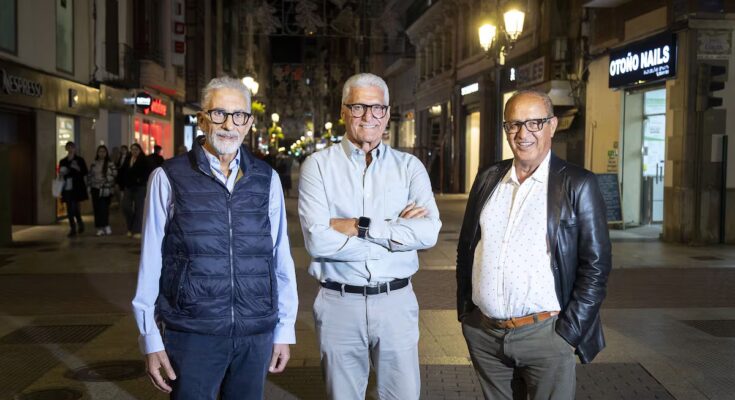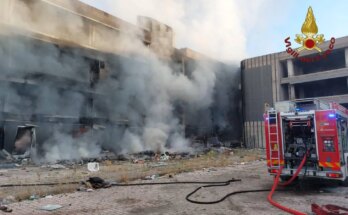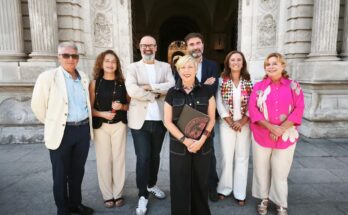Gazan youth Shaban Kilani thought he would die that night. He was 16 years old and his town, Beit Lahiya, seven kilometers from Gaza City and like the entire Strip, lived under an almost permanent curfew imposed by Israel after the 1967 war. “Every two or three days the army gave us an hour to leave the house; outside of that time, anyone on the street was shot, no questions asked,” he explains. His mother fell ill and was admitted to Al Shifa hospital, now reduced to rubble, and he decided to “use that hour to be with her”. The curfew caught him in the hospital and the doctor forced him to leave “by order of the army” claiming that if he didn’t do so he would be the culprit: “I didn’t understand: I knew they would kill me. Why him or me?” Shaban remained hunkered down in the hospital compound until the next day. He avoided detection. “That night I swore that I would become a doctor, as a way to rebel against injustice. Yes, I studied medicine because of this tragic situation,” he acknowledges.
On impulse, Kilani wrote three letters and sent them to medical schools in Madrid, Paris and Rome. The Complutense was the first to respond: “I packed my bags and left.” He landed in Barajas. I knew nothing about Spain. “I thought I had the wrong destination because I was going to Madrid and not Barajas,” he laughs. He didn’t know Spanish, he had 200 dollars in his pocket and the first night in the hotel in Quevedo alone cost him 30. That young man learned the language, finished medicine, specialized in Urology and obtained his doctorate. After several years in Madrid and León, where he created the first Urodynamics Unit in Castilla and León, he moved to Castellón as head of the Urology service at the Gran Vía Hospital and, subsequently, at the La Plana Hospital in Vila-real. Since 1996, his life, personal and professional, has been linked to Castellón.
At 75, Kilani has just received a tribute together with two other Palestinian doctors, also retired, who began their careers at the Faculty of Medicine of Valencia. They are Ahmad Khalaf (77 years old, from Bethany, West Bank), an internist and pioneer in smoking prevention and early lung cancer research; and Saber Ashi (76), specialist in Physical Medicine and Rehabilitation and head of the service in La Plana. Ashi was born in Al Ramlah, a city in the heart of Palestine annexed by Israel after the 1948 partition plan. “My house was occupied by an armed group of Israeli settlers,” she explains. He was six months old.
Last Thursday, Rototom’s Exodus Foundation paid tribute to their career and their legacy to Valencian public health. “We simply assumed the duty of doctors of a public system that must serve humanity,” they underline. “Spain has given us everything, a country, a home and a profession, and the debt of gratitude for this generosity is enormous”
In addition to being colleagues and compatriots, they are friends. To questions about the legacy they leave in Valencian healthcare, Kilani agrees, in the plural, as part of a team: “Having created a competitive and strengthened urology service with the most innovative technologies, and introduced laparoscopic surgery in this field in the province.” For Ashi, promoter of the Rehabilitation Service in La Plana and of the implementation of physiotherapy in health centres, “the best legacy I have been able to leave as a doctor is trust in my patients”. “Healing is not just repairing a body, but giving a person back their place in the world,” he quotes.
Khalaf marked a milestone in the prevention and fight against smoking. He activated the first consultation to stop smoking in a public hospital in the Valencian Community – one of 10 in Spain -, being an intern in La Magdalena. A work that has expanded the Azahar Association, introducing the early diagnosis of COPD and lung cancer, and starting from a pioneering approach: the biopsychosocial one. “We were the first to deal with smoking, human rights, the ethics of responsibility and the philosophy of peace”, explains Khalaf, who admits that he would have become a political scientist, but the upheaval of Franco’s regime changed his plans: “During my stay in Madrid to learn Spanish, I saw that the Faculty of Political Sciences was closed most of the time due to the demonstrations against Franco and the entry of the Greys; I thought about it again and my mind directed me to Valencia, and Medicine.”
Today the three awardees share that they have become leaders of “one of the best healthcare systems in the world” for their “ethics and professionalism”, which has its strength in its “universality” and which urgently needs to be treated with “good management, responsibility and humanism”. A care that they extend to healthcare personnel, which requires “respect and time to investigate, train and treat”. For all three it is essential to strengthen “prevention and health promotion” starting from school.
Kilani: “Education is our resistance”
Khalaf, Kilani and Ashi also share a past and memory. They belong to the Nakba generation Catastrophe of the 1948 Palestinian exodus due to the creation of Israel. The three arrived in Spain at a time of “total destruction” in Palestine. The three were denied the possibility of returning after their studies due to obstacles from the Israeli state: “The motto was: those (Palestinians) who are inside, let them go, and those who are outside, don’t come back.” All three were marked by their origins in their professional careers. “We were very clear, and this is common to the Palestinian people, that not having stability, the only way to live is the science that you carry in your head and can pack in your suitcase to develop a life project,” they add. “Palestine is the world leader in the number of graduates and doctors, proportional to the population, according to the UN. Education is our homeland and our resistance. Omar Mwannes Yaghi, Nobel Prize in Chemistry 2025, comes from my people,” Kilani proudly declares.
Palestine. When the conversation turns to her, with Gaza and the ceasefire violation in the foreground, the tone becomes serious. Overwhelming. The genocide killed 10 of Kilani’s grandchildren and destroyed his village, the same one where he has not been able to return for 29 years because they are “permanently surrounded, occupied and isolated” in Gaza. “It is catastrophic, unbearable, beyond imagination” and reflects “the destruction of humanism”: “A society that tolerates this is dead.”
“Our hope is in people, not in governments,” they underline. In the mobilization of citizens who traveled to the streets and universities and encouraged global awareness to “open their eyes”, approach another version of the conflict and reveal its roots. “It is not about Judaism at all, but about Zionism created by the West and agreed with the far right,” they indicate. “It is our greatest misfortune, but Gaza has revealed its true face, at great cost, and is changing the course of the world: the victory of the mayor of New York, Zohran Mamdani, for his position in the face of this genocide is no coincidence,” says Kilani.
They would not change what they had experienced. The decided. “I would do it again. I swore to become a doctor that night as a rebellion against injustice, and I am deeply proud and satisfied,” Kilani says.



